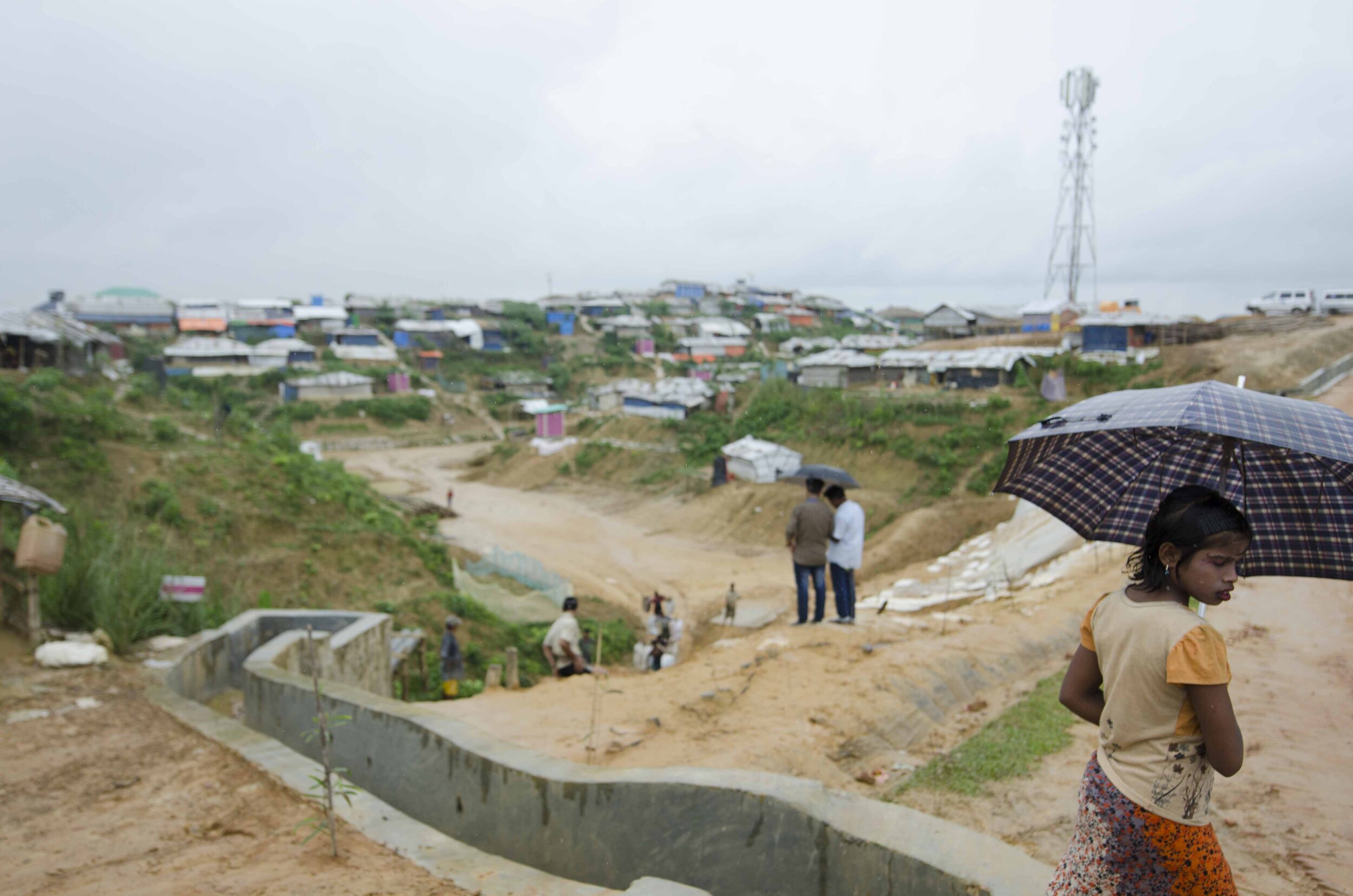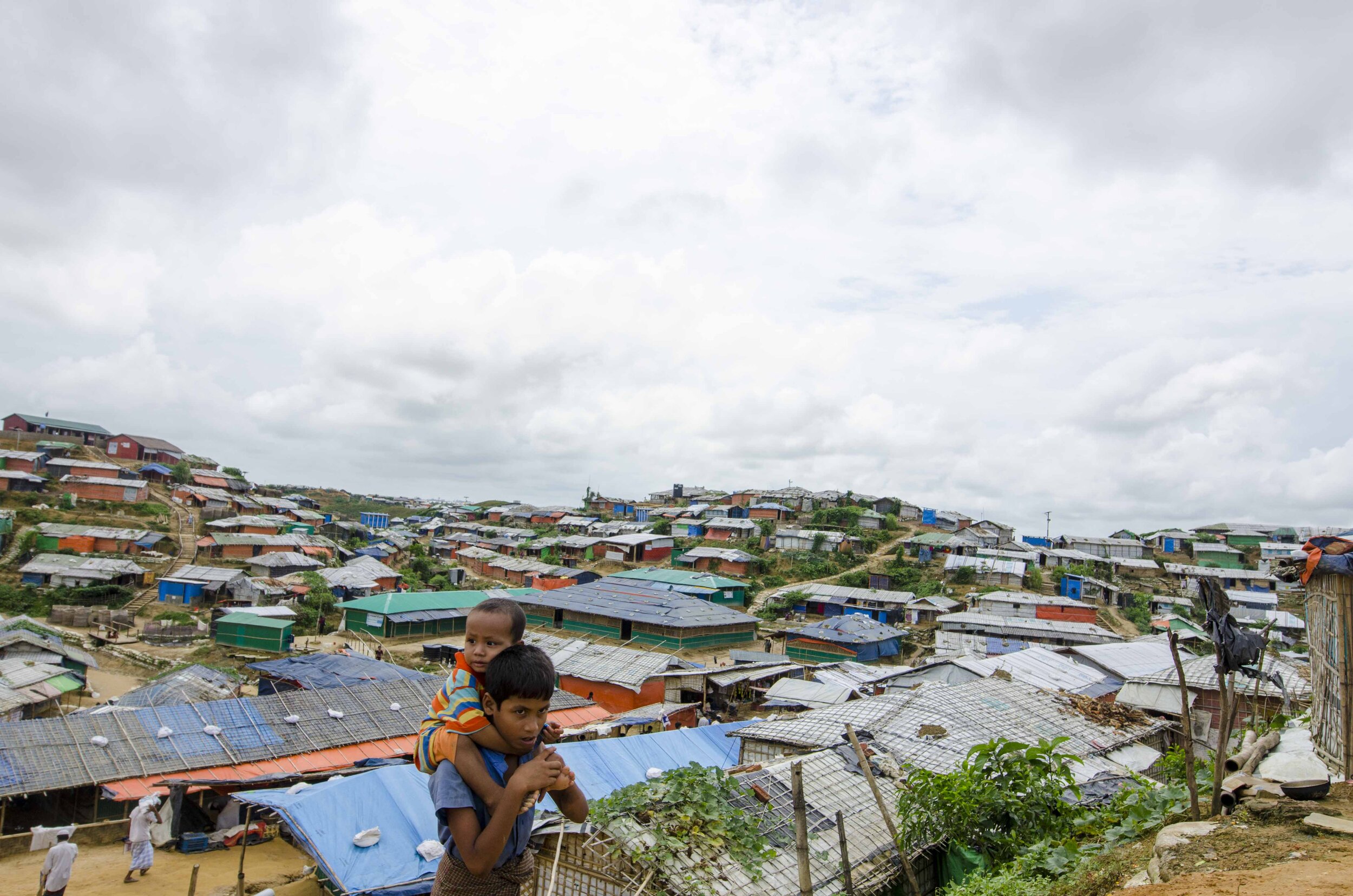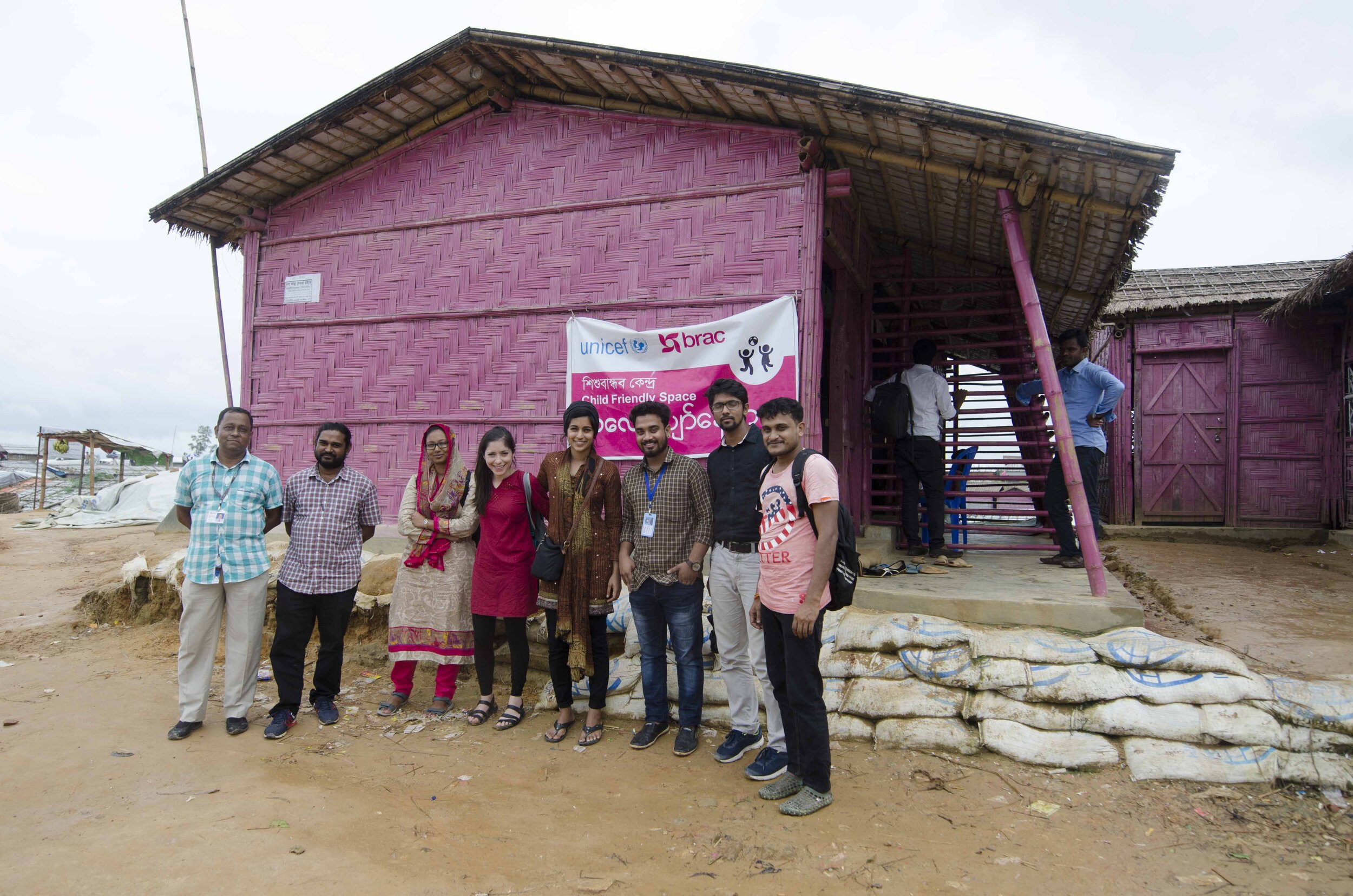Reshma Hussam is an assistant professor of business administration in the Business, Government and International Economy Unit at Harvard Business School, teaching the Business, Government and International Economy course to MBA students. Previously, she was a post-doctoral research associate at the Economic Growth Center at Yale. Reshma graduated from MIT as a Burchard Scholar in 2009 with a major in economics and received her PhD in development economics at MIT in 2015. She has been awarded a Paul & Daisy Soros Fellowship for New Americans, a National Science Foundation Graduate Research Fellowship, and is currently a Hellman Faculty Fellow at Harvard Business School.
“Reshma graduated from MIT as a Burchard Scholar in 2009 with a major in economics and received her PhD in development economics at MIT in 2015.”
Exploring questions at the intersection of development, behavioural, and health economics, Reshma has explored topics ranging from the role of ultrasound technology in generating skewed sex ratios and low bargaining power for women in marriage, to the role of mothers and children in establishing positive preventive health habits within the home. Her most recent work engages refugee populations including the Rohingya of Myanmar, where she considers the psychosocial costs to unemployment in a setting of trauma and instability, how employment and cash opportunities differentially affect men and women in the household, and how the loss of home alters refugee expectations and investments in their future.
“Reshma’s goal is to ensure future business leaders are well versed in some of the world’s greatest challenges and injustices.”
Reshma’s goal is to ensure future business leaders are well versed in some of the world's greatest challenges and injustices. She kindly had a zoom call with me to discuss her career so far and what its like teaching at the world’s most celebrated business school.
Tell us a little about your career trajectory. Why did you decide to pursue a PhD and then a career in academia?
I was lucky to grow up in a household with a curious father, a chemistry professor, who would do science experiments with us in the kitchen, and a mother, a brilliant and creative woman, who would spend her days crafting art projects and writing poetry with us. There was a lot of room to simply imagine, and I appreciated this as I got older – something I knew academia might also give me.
“...growing up in suburban America but spending much time in Bangladesh, where most of my family lived, forced me to reckon with inequities in livelihoods that just didn’t make sense, and of course were not just or fair.”
I wanted to pursue a field that fed my wide interests (I loved science and math but also anthropology, philosophy) and was also useful to the world in an immediate way: growing up in suburban America but spending much time in Bangladesh, where most of my family lived, forced me to reckon with inequities in livelihoods that just didn’t make sense, and of course were not just or fair. Development economics gave me that opportunity: to use a combination of math, sociology, history, and moral philosophy to do something that might benefit people less lucky than myself.
Some of your research focuses on really important issues in South Asia. Please could you discuss why you chose to focus on these issues and some of your most interesting findings?
I have always been interested in questions of female bargaining power in the household. Why is it that so many of our societies remain entrenched in such deeply patriarchal institutions and norms despite apparent advancements in opportunities for women? My first foray into this was a project that explored how microcredit institutions, at least as they are implemented in Bangladesh, might perpetuate, rather than alleviate, patriarchal norms. While a lot of recent evidence tells us that giving women access to cash can be a meaningful source of empowerment, and microcredit is therefore often targeted towards women, what I observed in Bangladesh was that males in the family – whether it be the father, husband, or son – would often leverage their power to force a woman to take out a loan, which they would use at their own discretion but whose burden of repayment would fall on the woman’s shoulders. While I came across these stories from female borrowers time and time again, this project is still waiting to really take off: I want to document this in a systematic way and explore how one might break or alter these norms.
“I was lucky to grow up in a household with a curious father, a chemistry professor... and a mother, a brilliant and creative woman”
Another set of projects focuses on things that a woman, even in these patriarchal spaces, can, to some extent, control: the health and wellbeing of their children. In my public health work, I consider a very simply behaviour – handwashing – that has huge implications for the health and wellbeing of children (diarrhea and respiratory infection are among the leading causes of infant and child mortality in the developing world, and both can be significantly reduced simply by handwashing with soap). Despite its enormous benefits, hardly anybody does it. Why not? This set of projects explores how we can make handwashing into a habit, what sorts of education interventions do and do not work in these contexts, and how positive hygiene behaviors learned at school might transfer (or not) into the home. The exciting thing here is that we have the power to – through the mother – save childrens’ lives: one of our simplest interventions, the provision of a simple handsoap dispenser with foaming soap – increased the height and weight of young children in rural West Bengal significantly in just eight months.
“I have always been interested in questions of female bargaining power in the household. Why is it that so many of our societies remain entrenched in such deeply patriarchal institutions and norms despite apparent advancements in opportunities for women?”
I was really interested in the three years you have spent observing Rohingya refugees in Bangladesh. Was it difficult to conduct such research? You focus on issues which are not given much attention, please can you let us know what they are?
It was difficult. It is still very hard. But it is also this enormous privilege: to be able to learn from and work with this community of people who have gone through such suffering, such unimaginably brutal violence, and yet somehow still manage to move on, to live, even to look forward! Just so you have a sense: 88% of the adults in our survey sample witnessed the murder of at least one – but usually many – loved ones during their violent expulsion from Myanmar. And yet they keep moving forward. The children are especially inspiring: these little children witnessed their family and friends murdered, then fled for weeks through muddy forests and monsoon rains, foraging for food, often injured, to make it to Bangladesh. And yet here they are, in these camps, drawing pictures and laughing and singing. Just as the cruelty that we humans are capable of is nowhere clearer than in the genocide that happened, the resilience of the human spirit is also nowhere clearer than in these refugees.
“...it is also this enormous privilege: to be able to learn from and work with this community of people who have gone through such suffering, such unimaginably brutal violence, and yet somehow still manage to move on, to live, even to look forward! ”
I’m working on two projects in the camps at the moment. The first one tries to estimate the psychosocial costs to unemployment: most of these refugees have absolutely nothing to do in the camps, and in a context where they have suffered from so much trauma and are facing such great uncertainty about their futures, you can imagine how harmful to your mental health idleness might be. We try to quantify these costs and design a work intervention to improve psychological wellbeing. A second project explores the value of home: even though these refugees fled a brutal genocide, most of them still want to go back. This might be baffling to you or me but makes sense to them: it is their home! A source not just of shelter, but of tradition, ancestry, identity, comfort, and so much more. So we are working on a program that seeks to build a sense of home and belonging among adolescents in the camps, and examining how this impacts their psychosocial wellbeing, their preferences around migration, and investments in a future in Bangladesh.
You have researched the correlation between race and mass incarceration in the United States, post George Floyd and the Black Lives Matter campaign, do you believe things will start to change?
That is a hard question. And I think the answer has less to do with the evidence out there and more to do with the perspective you choose to have: are you an optimist or a pessimist? There are many, many reasons to be a pessimist: in fact, one of the reasons behind writing this case on race and mass incarceration in the United States was to underscore to students the countless incarnations and reincarnations of deep and brutal dehumanization that our national history is steeped in: starting with the genocide of Native peoples (in which European colonists questioned whether Indigenous peoples had souls – and therefore whether they were ‘human,’), then the Trans-Atlantic slave trade and ensuing centuries of chattel slavery (where black bodies were perceived and treated as animals, at best), to the Black Codes (where chattel slavery was replaced – often with even more horrifying consequences – with convict leasing), to the Jim Crow laws and segregation (black bodies too dirty to `mix’ with), to the ‘War on Drugs’ (black bodies criminalized, and now feared, under new language) to the present state of our nation, in which the United States has the highest incarceration rate in the world, and our prisons are made up disproportionately of black and brown bodies. Why?
“We have to reckon with the truth that the way in which we perceive ideas such as “punishment,” “criminals,” and even “justice” are deeply infused with beliefs about racial difference and hierarchy. ”
To be an optimist requires that I believe that we – and that includes not only the outright bigots but also people like you and me, self-proclaimed champions of liberal or progressive values – dig deep into our conscience and recognize that this sort of dehumanization is part and parcel of not only the historical foundations of our nations but also every present institution. We have to reckon with the truth that the way in which we perceive ideas such as “punishment,” “criminals,” and even “justice” are deeply infused with beliefs about racial difference and hierarchy. If we do not reshape these fundamental assumptions within ourselves, we might see change, but it will simply be a different incarnation of the same practice of dehumanizing the black and brown body.
What are some of your highs and lows at Harvard Business School been like? Is there anything you are focusing on in particular with your students?
The high: The freedom and support to research what I am passionate about and to have a platform to transform that research into policy. It is every academic’s dream and I’m so blessed to have this opportunity. And the chance to engage with so many bright, motivated, creative young minds every year in the classroom: to learn from them, to challenge narratives together, to elevate discourse together.
“I want my students to trust not only my intellect but also my sincerity, but I fear that sometimes, in this polarized and terribly simplified world where every human is typecast, this isn’t always possible. ”
The low: Feeling like I am not reaching all my students, and accepting that I cannot. I want my students to trust not only my intellect but also my sincerity, but I fear that sometimes, in this polarized and terribly simplified world where every human is typecast, this isn’t always possible.
What advice would you have for someone wishing to pursue a career in academia?
This will sound cliché but it just the truth: you will only be happy if you are pursuing the questions you care about. Academia is a totally self-driven pursuit. If you spend your time asking the questions that you think the discipline wants you to ask, rather than giving yourself the time and space (and compassion) to discover what you feel your discipline should be asking, you may be successful, but I fear you won’t be happy.
You have achieved so much at such a young age, what are some of your aspirations for the future?
In the short term, two goals: First, producing research that connects directly to policy and seeing the results of that policy. Second, having greater say in the shape of the Harvard Business School curriculum. We have this amazing opportunity to train not just business leaders but also policy leaders at this school. I want to be help shape a curriculum that nurtures empathy, nuance, and the elevation of forgotten narratives. If we are to lead companies, or communities, or countries, we must learn to empathize first with those who possess the least power, the least say or control in the course that their lives will take. Building this sort of awareness is a tall ask, because, by construction, those without voice are also the ones we know the least about. I want to build a curriculum that changes that.
“I want to be help shape a curriculum that nurtures empathy, nuance, and the elevation of forgotten narratives.”
I have a one year old son, Hashem. In the long run, I want to raise him well. I want him to grow into a man who embodies compassion, generosity, gentleness, and recognition of all his privilege. To do that would be a real blessing and and accomplishment.
You can find out more about Reshma here
Photographs courtesy of Reshma Hussam
Rohingya camp photos courtesy of Wajiha Ibrahim






